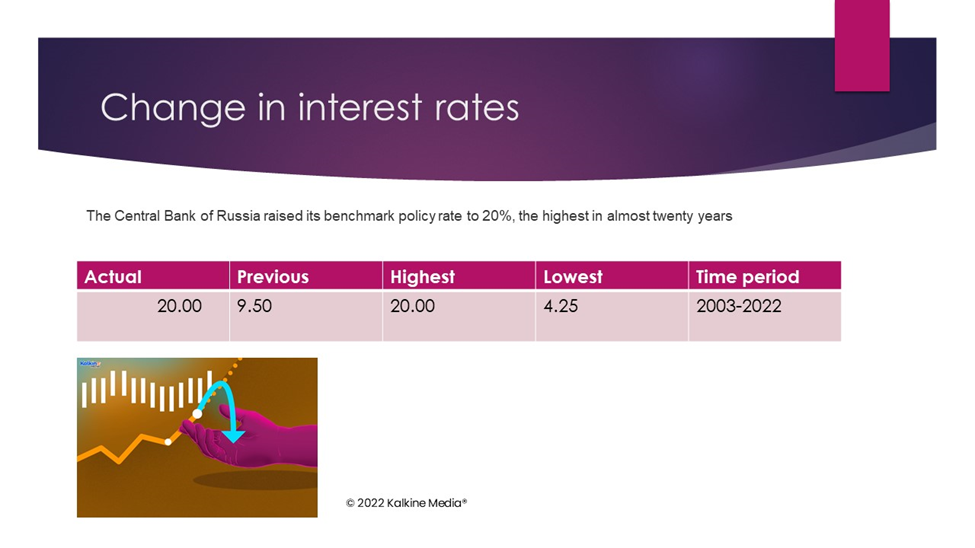Highlights
- Russia’s central bank sharply raised its key interest rate to 20% from 9.5%.
- The UK government has joined the US and EU to announce further sanctions against Russia.
- Russian companies listed on the LSE have dipped in value, including Sberbankand Gazprom.
The UK government has joined the US and EU to announce further sanctions against Russia. It has restricted individuals and businesses from making any transactions with the Russian central bank, the Ministry of Finance of the Russian Federation, and the Russian wealth fund.

© 2022 Kalkine Media®
Further, Russian companies are prevented from issuing money market instruments and transferable securities in the UK and prevented designated banks from accessing sterling and clearing payments through the UK to restrict them to process any payments through UK or have access to UK financial markets. On Saturday, the UK, US, and EU announced their plans to ban Russia from the Swift payment system.
RELATED READ: BP, Imperial Brands: Are these good buys amid Russia-Ukraine chaos?
In response to tougher Western sanctions, Russia’s central bank raised its key interest rate to 20% from 9.5% in a bid to address risks of rouble depreciation and increasing inflation. It also asked companies to sell 80% of their foreign currency revenues. The Russian rouble tumbled by almost 20% lower at 99.5 per dollar in Moscow, after crashing 28% to 106.44 earlier after sanctions. However, in Asian trading, it tumbled to a new record low of 199.50 per dollar.
For now, trading in Russian Stock Markets has been suspended, and Russian companies listed on the London Stock Exchange dipped to new lows, with Sberbank plunging than 70% and Gazprom falling 44%. The FTSE100 opened trading 1% lower after the Boris Johnson government said it is going to impose tough sanctions on Russia for attacking Ukraine. The German stock exchange operator, Deutsche Börse suspended trading of various Russian companies, including the country’s two financial majors, Sberbank and VTB Bank.
.jpg)



